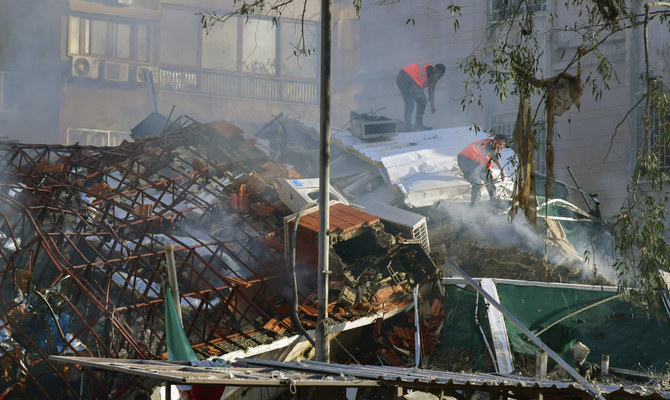
hen the overcrowded, long-distance bus from Johannesburg arrived at the Malawian border post of Mwanza last week, one passenger was dead. Fearing he had picked up Covid-19 in South Africa and infected all his fellow travellers, the guards sent everyone to a hastily built quarantine centre for 14 days.
The man had died of other causes but Malawi, which is well used to devastating diseases like HIV and Aids, cholera and malaria, is taking no chances. Along with São Tomé, Comoros, South Sudan and Burundi in Africa, it is one of the last countries in the world not to have confirmed a single Covid-19 case yet.
In Malawi only 20 people a day can be tested for the virus, and there are just 25 intensive care unit beds and seven ventilators in the country of more than 18 million people. Since February, however, the government has been racing to curb Covid’s arrival.
It has wheeled out a £24m preparedness plan, suspended international flights, banned weddings and gatherings of more than 100 people, closed schools and universities, and is making anyone arriving from Europe, China, or the US self-isolate. According to the ministry of health, 4,603 people who have entered the country in the past few weeks are “under surveillance”.
As an extra precaution, Malawi’s president, Peter Mutharika, has reduced the number of people he meets to 10-20 a day.
“We have been told to regularly wash hands using soap or alcohol sanitiser. But because there have been no confirmed cases, people are not yet too frightened. Business is going on as usual, people are still making huge gatherings at some places like markets,” says Blantyre accountant James Gomani.
While warnings about Covid-19 are widely heard in jingles and public health announcements in cities like Blantyre and Lilongwe, they have barely reached the remote rural areas where nearly 90% of Malawi’s population live and farm, and few people have access to TV, radio or electricity, says Patrick Kamzitu, a heath worker in Nambuma.
“We fear that it will come. If it does, it will overwhelm us, and be worse than cholera, which we had badly in 2013, and hunger in 2002. People will die in large numbers,” he says.
Kamzitu cycles from village to village warning of what may come and telling people to take precautions, but rural health centres have few drugs. Many people don’t even have soap or running water and are already weakened with malaria, HIV or tuberculosis.
Malawi has plenty of experience of handling contagious diseases but is barely prepared for a disease that can spread so fast, says Oxfam’s international head of inequality policy, Max Lawson, a former resident of Malawi who is now based in Nairobi.
“If Covid-19 gets in, it will spread rapidly across the country and many people will die. The health system is very weak and poorly resourced. The population is young, which may be in Malawi’s favour with a disease like Covid-19, but there is a lot of untested TB and HIV in the country.
“The UK government and other donors have not been supporting Malawi like they used to. They should immediately suspend the country’s debt payments. It would cost very little and help a lot. As it is, Malawi will be hit very badly economically by Covid-19.”
Health professionals fear it is only a matter of time before the pandemic reaches Malawi. “It has only been in the past few weeks that it has been spreading across Africa. So most people feel it will get here at some point. We may not be 100% ready but government is gearing up,” says Dr Bridget Malewezi of the Society of Medical Doctors.
Africa has confirmed only 6,473 cases, many of which were brought into the continent by people working in China or Italy. But the numbers of confirmed cases have quadrupled in the past week, and South Africa has started to identify internal infections. There has been little testing outside economic centres like South Africa, Nigeria and Egypt.
Joyce Banda, the former Malawi president, this week accused the government of hiding the real figures. On her official Facebook site she said Malawi needed to be transparent in order to access international disaster relief funds. “The global community cannot assist us when we are hiding our statistics and our challenges to fight the pandemic,” she said.
“There is some reason to hope Africa will be able to avoid the extreme level of disruption that affected east Asia and Europe. The experience of Ebola has taught important lessons about engaging communities in dealing with infectious diseases. And many African governments are well ahead of the curve in introducing restrictive measures,” said Nick Westcott, director of the Royal African Society in London, in a blogpost.
Since the publication of this article, the Guardian has learned that the government of Malawi has confirmed the first three cases of coronavirus in the country.












